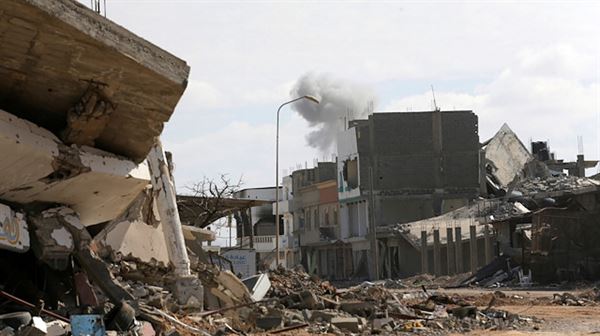East Libya based forces said they had launched air strikes near oilfields in the southwest of the country early on Thursday, after fighting in the ar
East Libya based forces said they had launched air strikes near oilfields in the southwest of the country early on Thursday, after fighting in the area shut down one of two major fields.
The eastern-based Libyan National Army (LNA) said on Wednesday it had driven rival factions from the 70,000-barrel-per-day (bpd) El Feel oilfield after carrying out air strikes, leading to production being halted.
The fighting reignited a conflict for control of large oilfields in southwestern Libya between competing military alliances that are also battling on the outskirts of the capital, Tripoli.
On Thursday, Mi-35 attack helicopters had targeted Chadian opposition forces preparing to attack Sharara oilfield, Libya’s biggest field, an LNA military official said.
The claim could not be independently confirmed. Both sides in Libya’s conflict frequently accuse the other of depending on African mercenaries.
LNA forces also shelled rival groups aligned with the internationally recognised government in Tripoli at an agricultural project near El Feel oilfield, the military official said.
The forces aligned with Tripoli had taken control of El Feel for several hours on Wednesday before being driven back.
Libya has been divided since 2014 into rival military and political camps based in Tripoli and the east. Haftar controls most of Libya’s oil fields and facilities but oil revenues are controlled by the central bank in Tripoli.
Libya’s oil production has been repeatedly disrupted over the past five years by conflict and blockades, but recently it has been relatively stable at about 1.25 million bpd.
Earlier this week, engineers at Sharara said the field production was stable at about 280,000-300,000 barrels per day (bpd), and security within the field was good.
